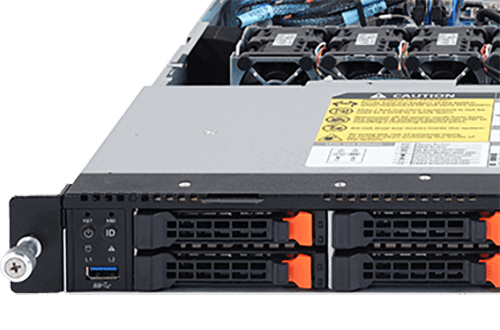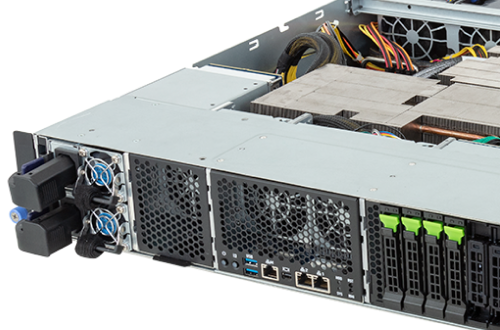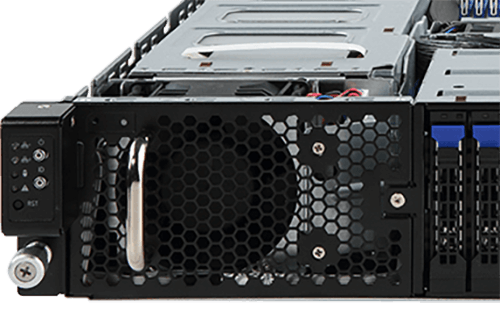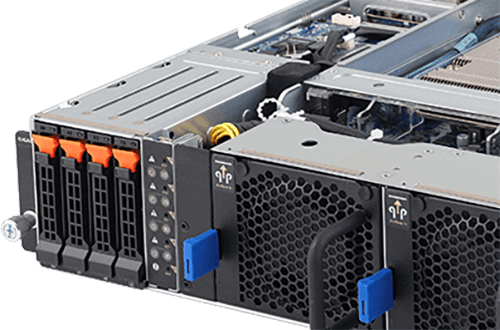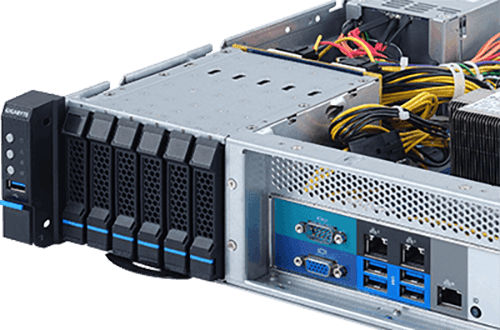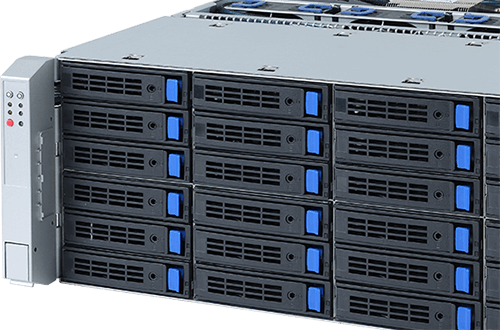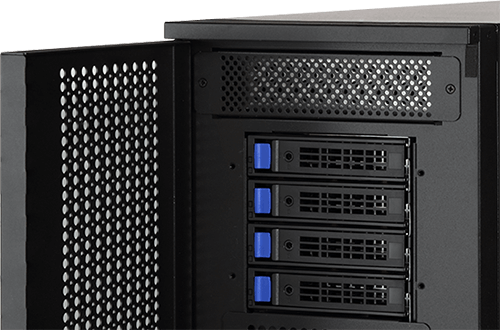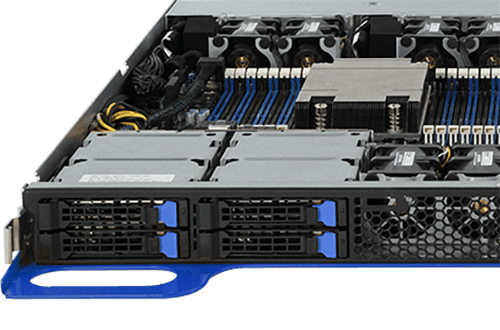NVMe
What is it?
NVMe is a type of software interface used for solid state drives (SSD), and stands for “Non-Volatile Memory - Express” (Non-Volatile Memory is a common form of flash memory found in SSD). The formal name of NVMe is the Non-Volatile Memory Host Controller Interface Specification. Compared to the older AHCI (Advanced Host Controller Interface) used for traditional mechanical spinning SATA hard disks, NVMe is adapted for use with SSD through a PCIe hardware interface, resulting in a much faster disk interface protocol.
Why do you need it?
Intel had previously developed ACHI for traditional high-latency spinning hard disks, but by 2009 SSDs were rapidly gaining popularity as a storage medium. The adoption of SSD resulted however in a performance bottleneck since the maximum transmission bandwidth of ACHI could not handle the transmission speeds possible for SSD devices. Therefore, NVMe was developed using a PCIe (Peripheral Component Interconnect Express) hardware interface. While ACHI can only support a maximum queue depth of 1 with 32 commands each, NVMe can support up to 64K queues with 64K commands each, thus breaking through the previous performance bottleneck of transmission bandwidth and speed.
Early SSDs were connected through a PCIe bus, but required a customized software interface for communication with the operating system. With the standardized software interface, the operating system requires only a single driver to communicate with all SSD devices that conform to the NVMe specification. In a data center that features multiple storage servers or that handles a large amount of data, speeding up data transmission and minimizing latency / delay are highly important considerations.
Early SSDs were connected through a PCIe bus, but required a customized software interface for communication with the operating system. With the standardized software interface, the operating system requires only a single driver to communicate with all SSD devices that conform to the NVMe specification. In a data center that features multiple storage servers or that handles a large amount of data, speeding up data transmission and minimizing latency / delay are highly important considerations.
How is GIGABYTE helpful?
In addition to meeting consumer market demand for NVMe SSDs, GIGABYTE also provides enterprise solutions such as the R282-Z92, which can be used to build an All Flash Array with a capacity for 24 hot-plug 2.5" NVMe drives in a single 2U server system. And this 2nd Generation AMD EPYC (Rome) server also supports PCIe Gen 4.0 – which has doubled the bandwidth and transmission rates of PCIe Gen 3.0 to 64GB/s and 16GT/s respectively, resulting in much faster data transfer speeds between the CPU and peripherals such as accelerator cards, NVMe SSDs or high-speed networking cards.
WE RECOMMEND
RELATED ARTICLES

Component
SupremeRAID™ BeeGFS™ Performance with GIGABYTE Servers
The white paper explores how SupremeRAID™ with GIGABYTE S183-SH0 creates an extremely dense and efficient parallel filesystem solution and enhances the performance of BeeGFS—making it ideal for High-Performance Computing and Artificial Intelligence applications.

Success Case
Czech’s biggest search engine builds infrastructure on top of GIGABYTE solutions
Seznam, a major player in the Czech Republic internet market, in a search to upgrade its hardware infrastructure, found in GIGABYTE the ideal hardware solution partner to increase scalability and performance of its online services, resulting in major improvements in efficiency.

Tech Guide
How to Pick the Right Server for AI? Part Two: Memory, Storage, and More
The proliferation of tools and services empowered by artificial intelligence has made the procurement of “AI servers” a priority for organizations big and small. In Part Two of GIGABYTE Technology’s Tech Guide on choosing an AI server, we look at six other vital components besides the CPU and GPU that can transform your server into a supercomputing powerhouse.

Success Case
Silicon Valley Startup Sushi Cloud Rolls Out Bare-metal Services with GIGABYTE
The Silicon Valley startup Sushi Cloud is competing in the public cloud sector by providing “bare-metal” services that give users exclusive access to individual, standalone servers on the cloud, resulting in a triple boost to performance, versatility, and reliability. Sushi Cloud purchased GIGABYTE’s R152-Z30 Rack Servers to offer its clients the state-of-the-art performance of AMD EPYC™ CPUs; the versatility afforded by superb memory and storage capacities, in addition to OS and software ecosystem compatibility; and GIGABYTE’s proprietary high availability features (such as SCMP and dual ROM) and remote management functions (such as GIGABYTE Management Console and GIGABYTE Server Management).

Success Case
0 to 100 KPH in 3.3 Seconds! NTHU Builds Electric Formula Student Race Cars with GIGABYTE
Representing Hsinchu’s Tsing Hua University, NTHU Racing is one of Taiwan’s top Formula Student racing teams. In 2019, its electric formula student race car, the “TH04”, took second place in Formula SAE Japan. In August of 2022, its new and improved, 100% manufactured in Taiwan “TH06” raced for the gold in Formula Student Germany. Tsing Hua University built the “TH06” using GIGABYTE Technology’s W771-Z00 and W331-Z00 Tower Server/Workstation products. From finite element analysis (FEA) and computational fluid dynamics (CFD) modelling and analysis during the design phase, to racing simulations and experimenting with new tech during the testing phase, GIGABYTE servers provided NTHU Racing with the processing power and versatility it needed to engineer a high-performing electric vehicle that can go from 0 to 100 kph in 3.3 seconds—almost on par with Tesla’s Model S, which can go from 0 to 60 mph in 2.6 seconds.

Success Case
Using GIGABYTE, NIPA Cloud Soars Among CSP Giants in Thailand
NIPA Cloud is a leading public and private cloud service provider in Thailand. It has purchased multiple GIGABYTE R-Series Rack Servers to support the launch of its new service: NIPA Enterprise Public Cloud. Featuring powerful AMD EPYC™ processors and smart management functions, GIGABYTE servers boast the performance, availability, and power efficiency that can help NIPA Cloud go toe-to-toe with some of the world’s biggest CSPs, such as AWS, GCP, and Microsoft Azure.

Success Case
Spain’s IFISC Tackles COVID-19, Climate Change with GIGABYTE Servers
By using GIGABYTE, Spain’s Institute for Cross-Disciplinary Physics and Complex Systems is pitting the world’s foremost server solutions against some of the world’s most pressing issues, including the effects of climate change, pollution, and COVID-19. GIGABYTE servers are up to the diverse and daunting tasks, because they are designed for high performance computing, intensive numerical simulations, AI development, and big data management.

Success Case
The University of Barcelona Gets a Computing Boost with GIGABYTE Servers
The Institute of Theoretical and Computational Chemistry at the University of Barcelona has increased the capacity of their on-campus data center by over 40% with a new cluster of GIGABYTE servers. Hundreds of researchers will benefit from the computing power of AMD EPYC™ processors. Administrators can easily manage the cluster with GIGABYTE Server Management (GSM), a proprietary multiple server remote management software platform provided for free by GIGABYTE.







